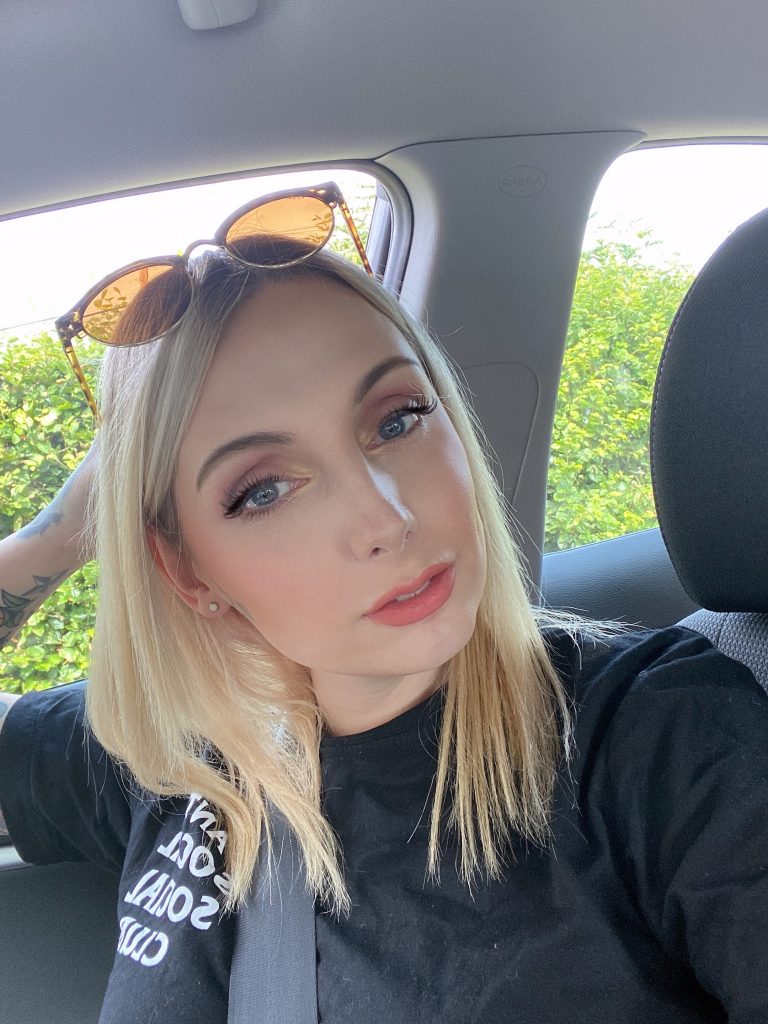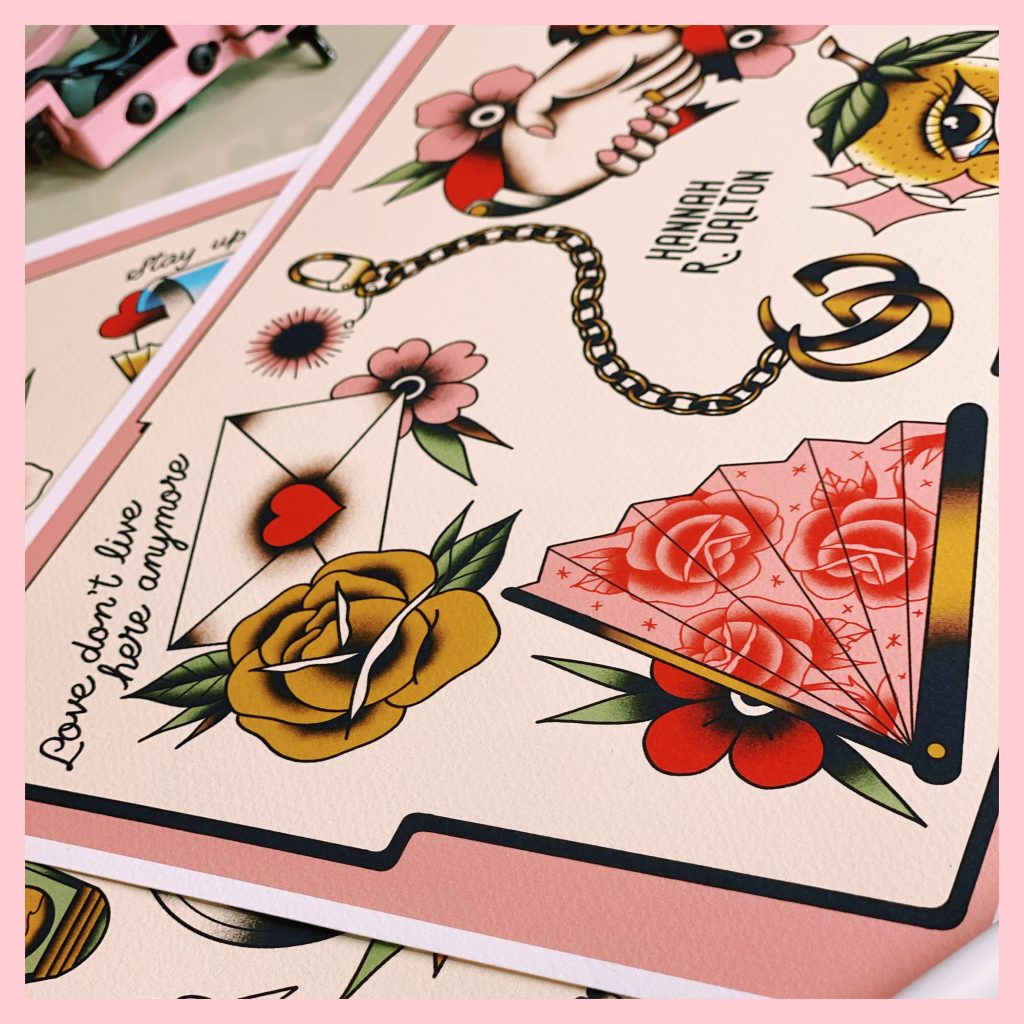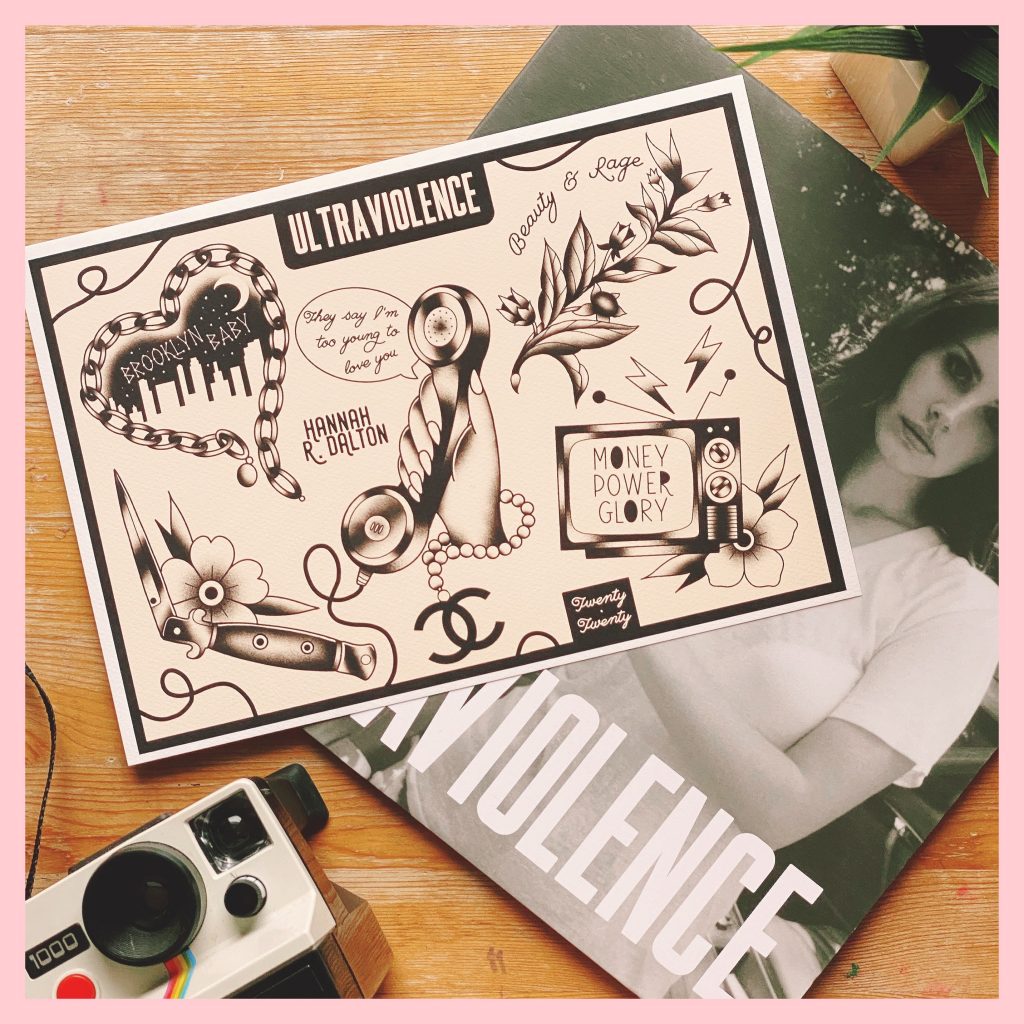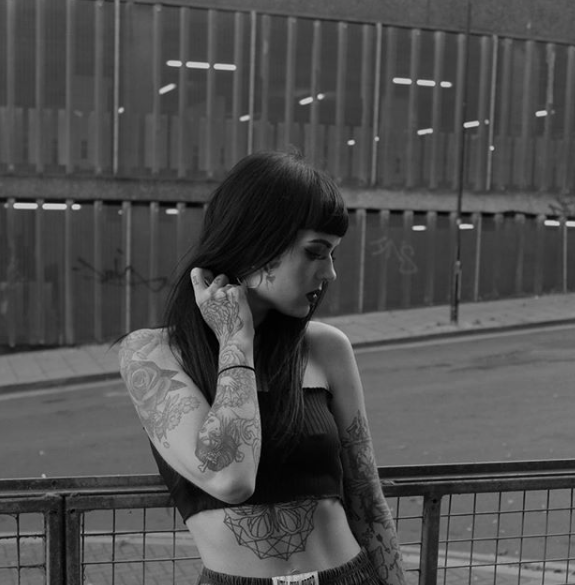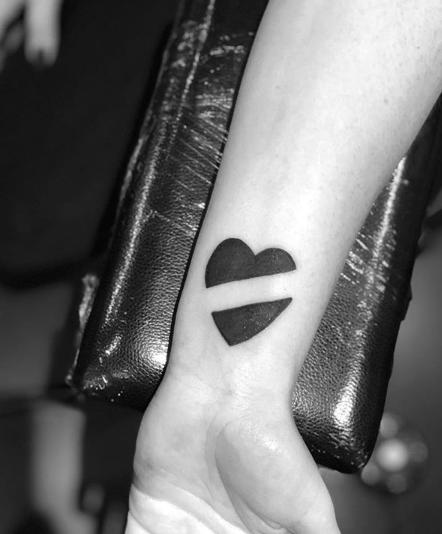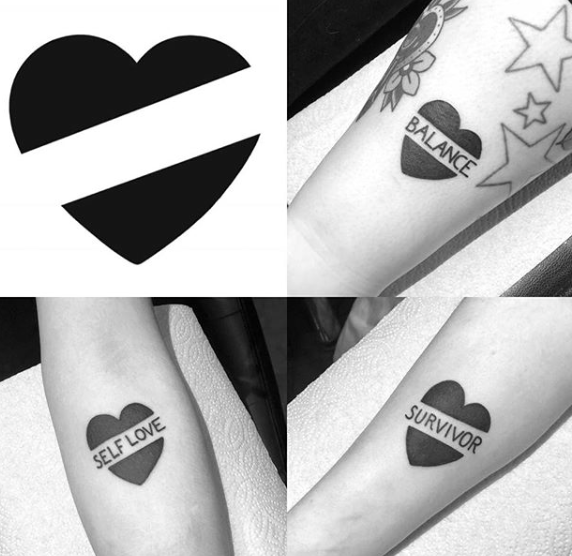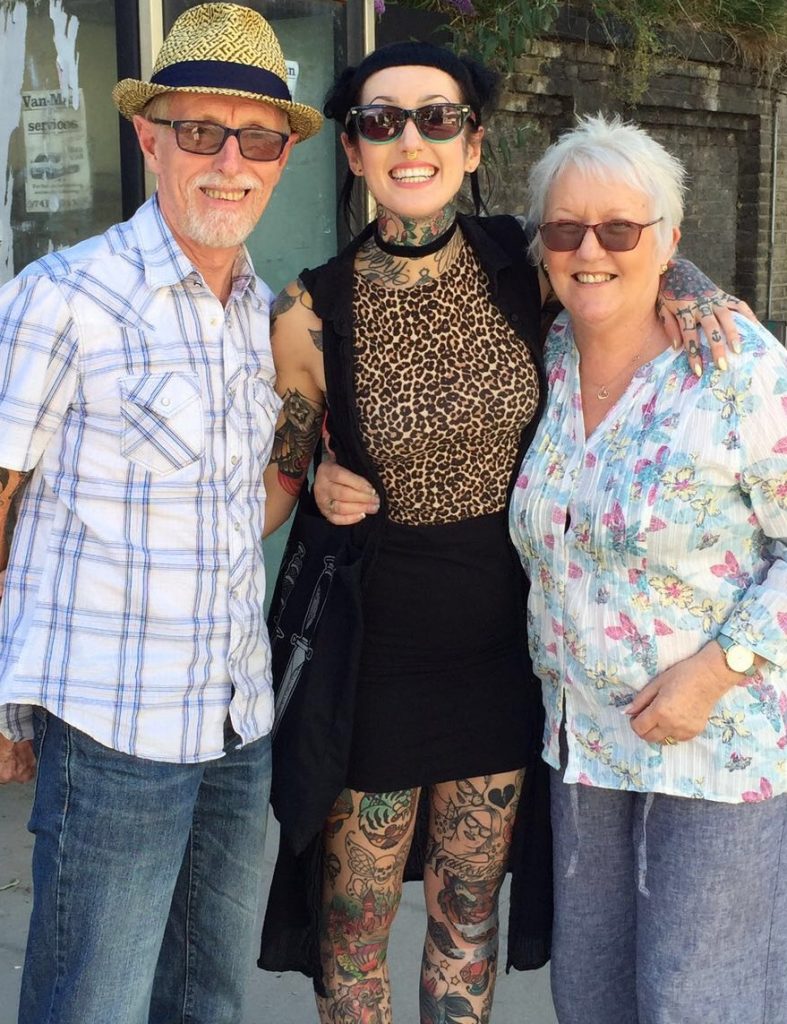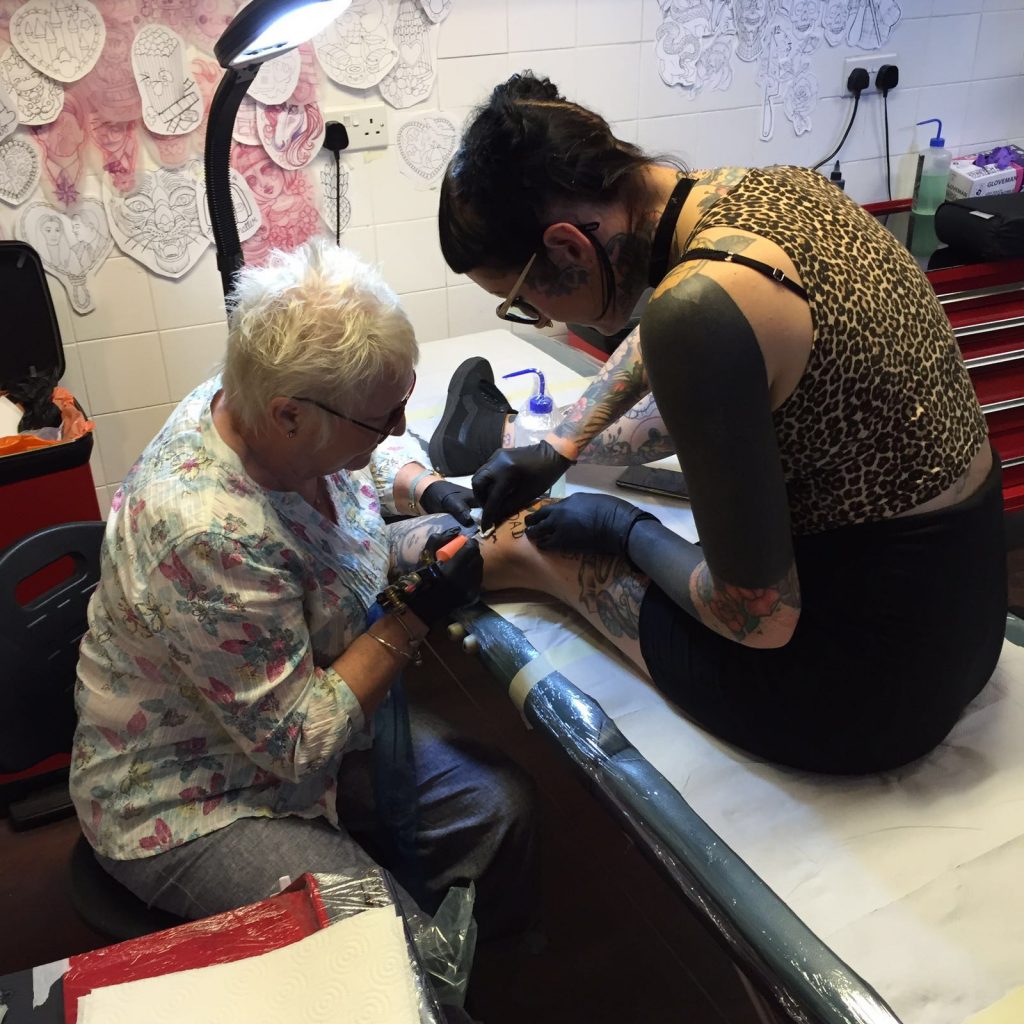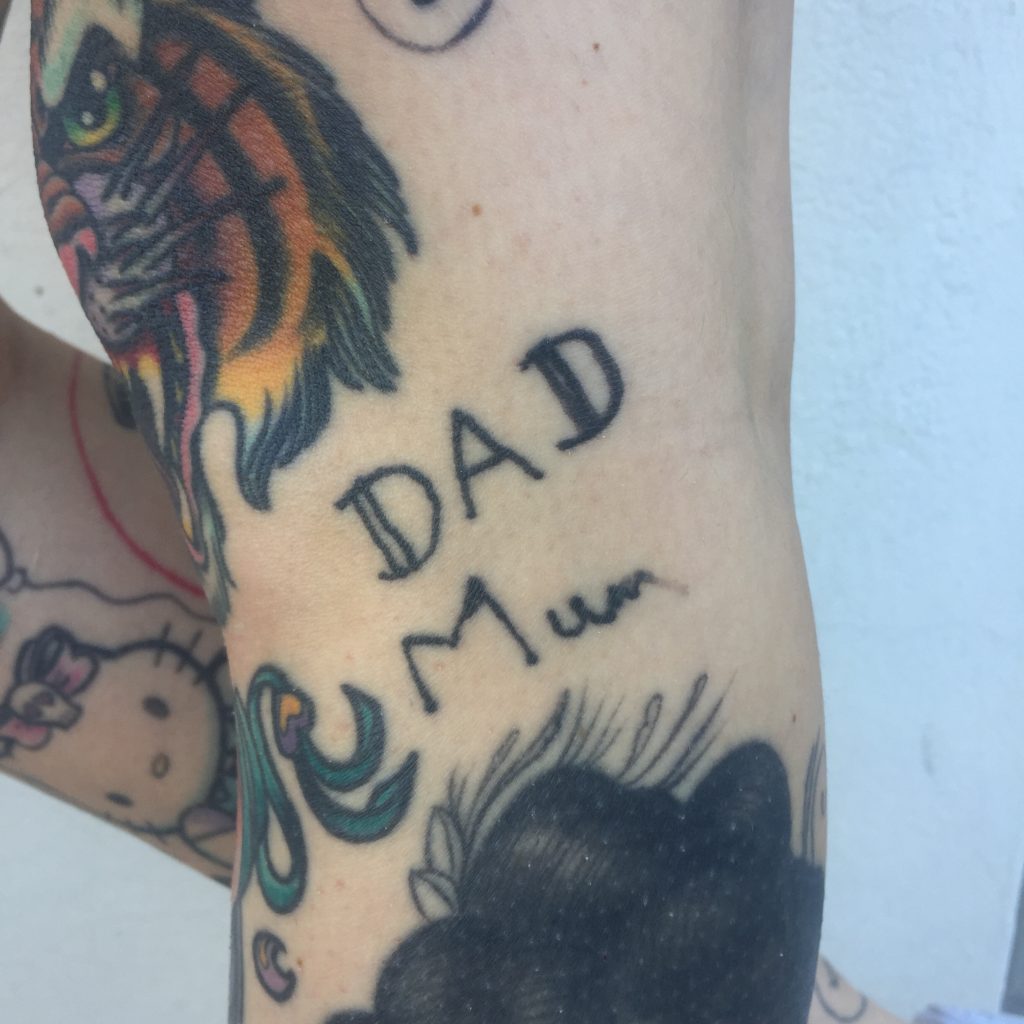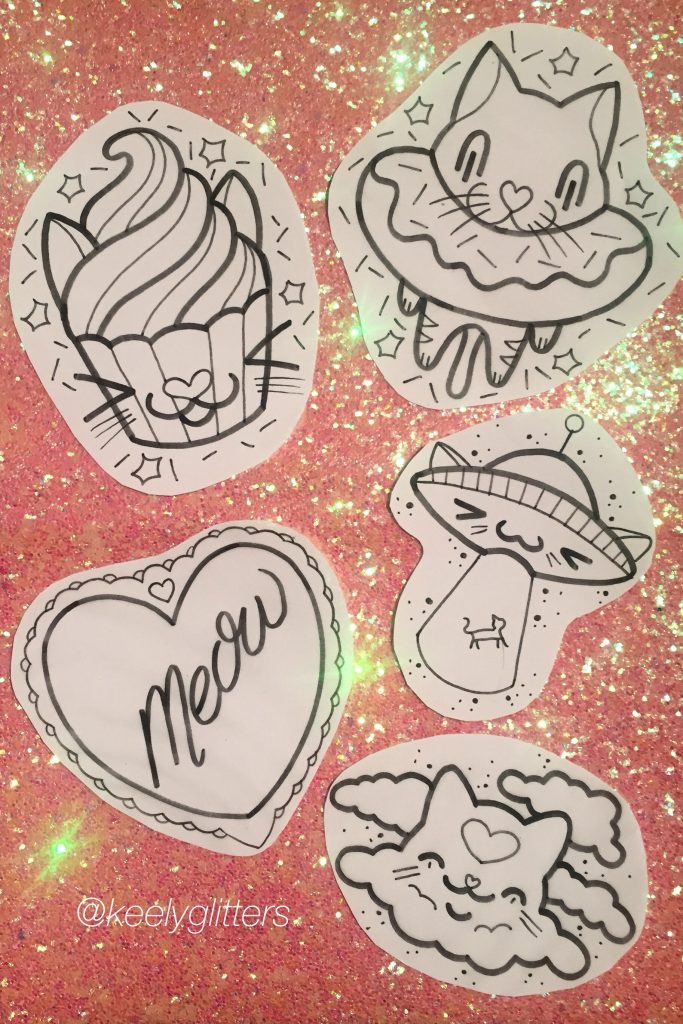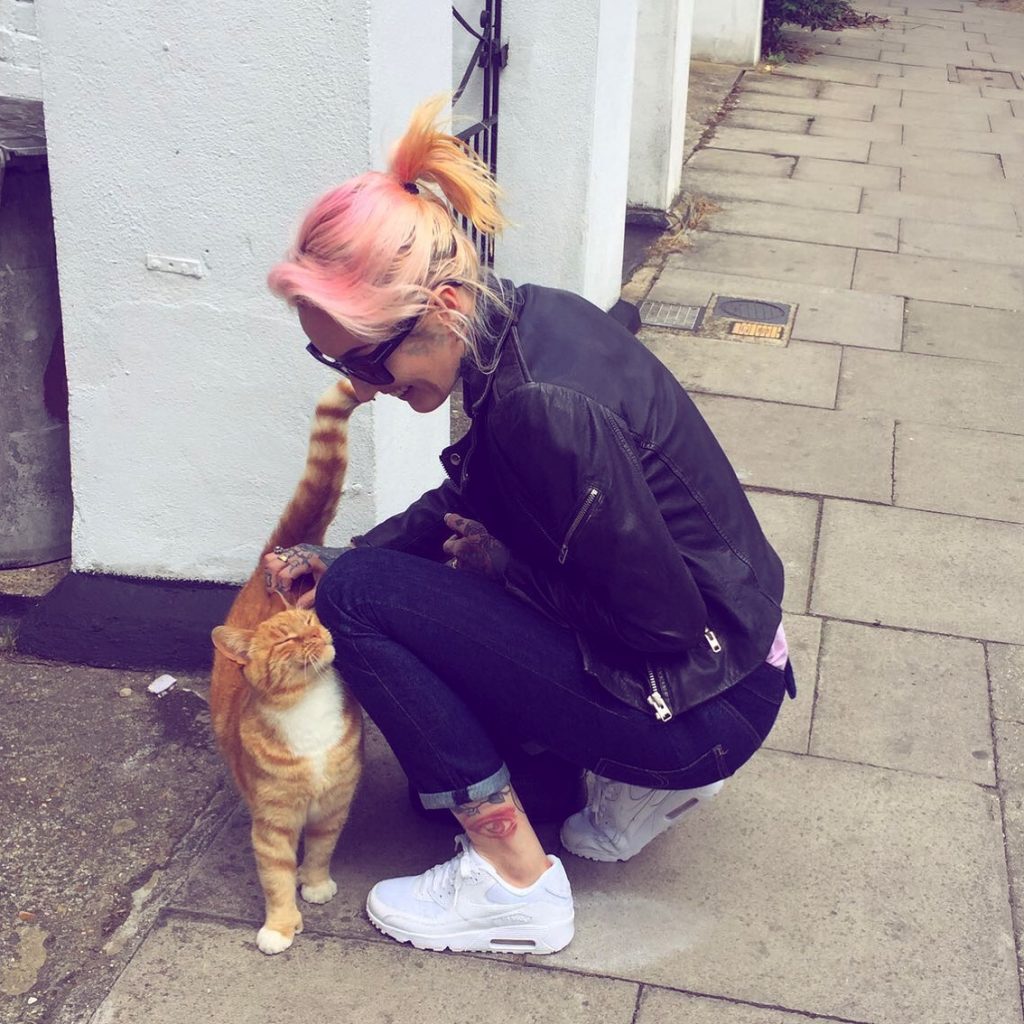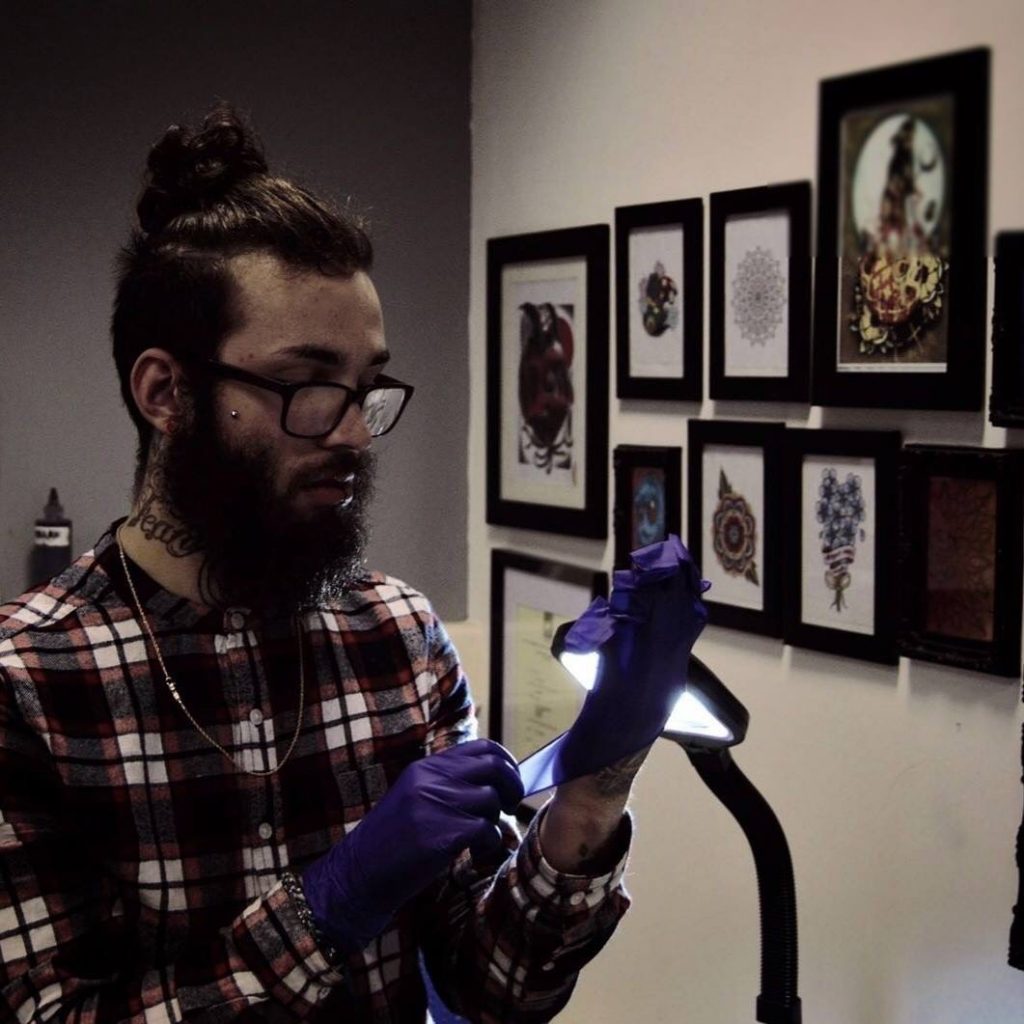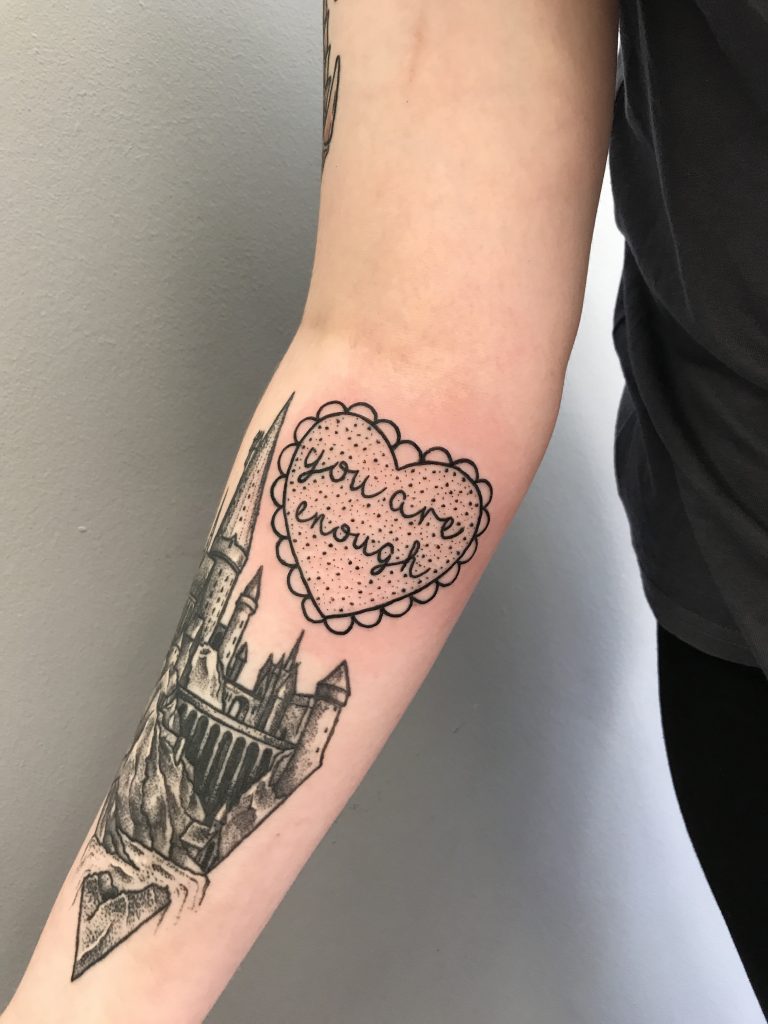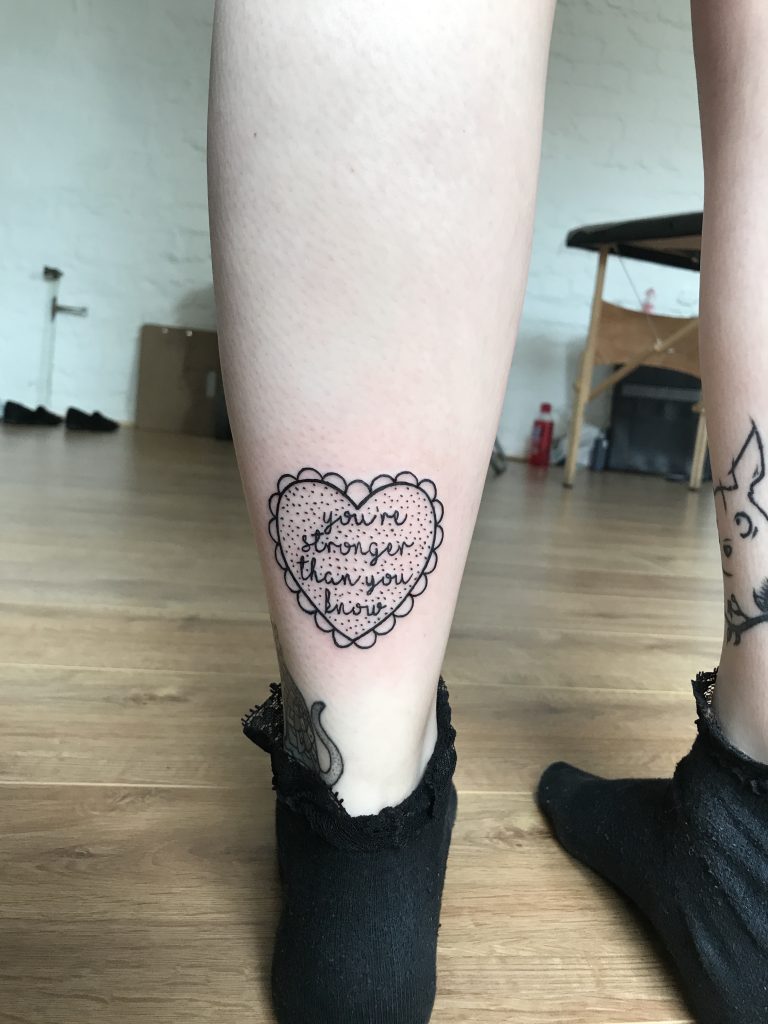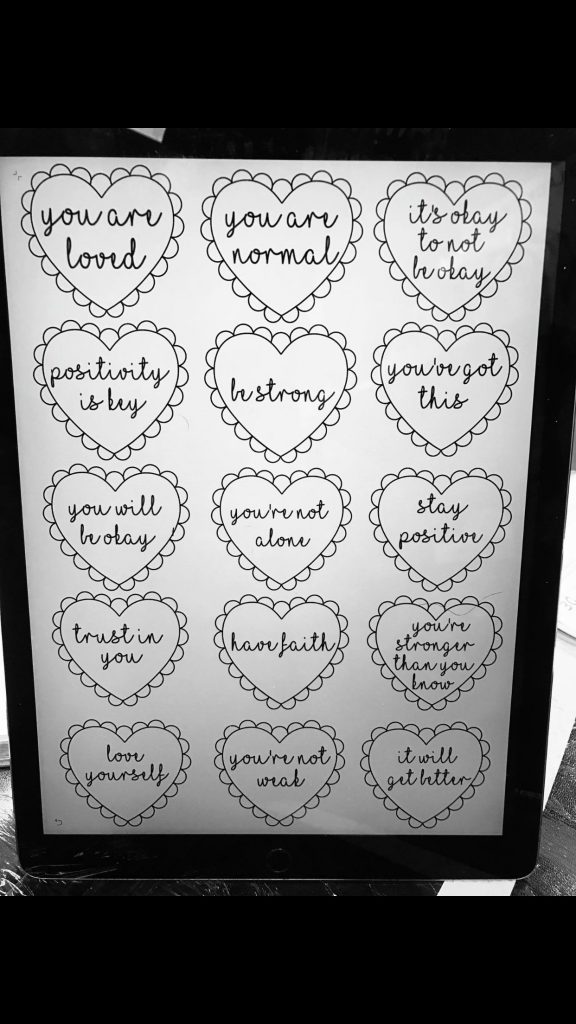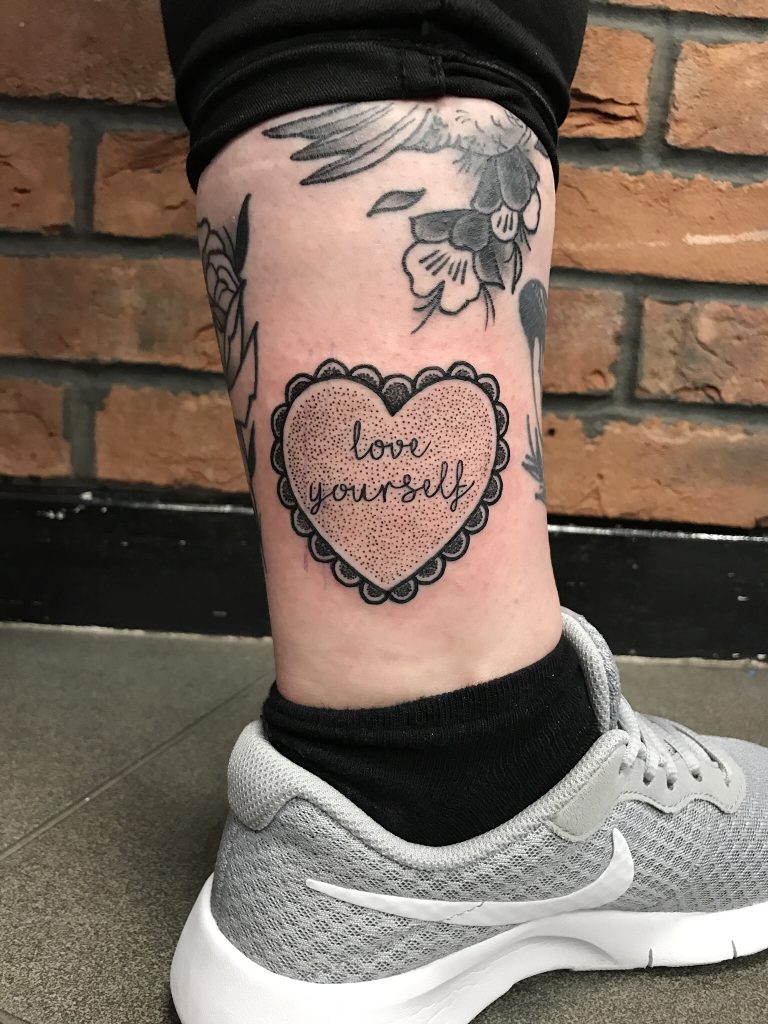In this post Dr Kimberly Baltzer-Jaray discusses the important relationship between her mental health and her tattoos…
Disclaimer: I want to make it clear that I speak only for myself and my own experiences. I do not generalise or speak for anyone else. I also do not prescribe or recommend things that I do. If others find some common ground or connection with things I say, it brings me no little joy.
Although I have been a writer for Things & Ink for years, in the printed issues and then occasionally online for the blog, I would like to introduce myself here in a more personal way and using three key existentially descriptive phrases. I am an academic: I have a PhD in philosophy, and I teach in Women’s & Gender Studies at a university. I am a tattoo scholar: I have written about and researched tattoo history, philosophy, and culture for about a decade, and I have been getting tattooed for roughly 24 years now. I live with depression and the lasting effects of PTSD: I have Dysthymia, what is also called high-functioning depression, and I was diagnosed in my 30s while being treated for PTSD.
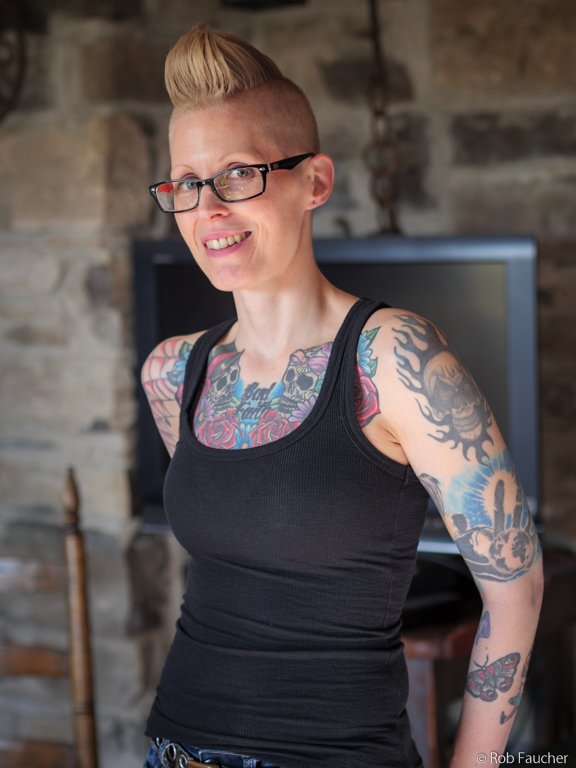
I’ve had depression since I was a teenager. It went undiagnosed because my outward behaviour didn’t fit the accepted stereotype of ‘depression’ in the 1990s. It was difficult for medical professionals to see it in my 20s and early 30s since I had completed successfully grad and postgrad education, I had a busy teaching schedule, tons of side projects, friends, and a smile on my face. What they needed to understand was that the overachieving, the grueling workaholic attitude, the hyper perfectionist punishing mentality, the desire to be constantly busy with work or to never sit in silence, was in fact the evidence of my struggle. Away from public eyes, I barely slept, I drank to quiet the chaos and darkness in my head, and I was emotionally numb and yet utterly raw. I thought about dying all the time, and then felt guilty about it because that would mean I’d fail to get my work done and as a result let others down. I was very good at hiding what I was, I had perfected it over years, that is until PTSD knocked my legs out from under me. That’s when my façade cracked and my issues came oozing out. The therapist I was sent to saw through me immediately, she helped me get my diagnosis and begin the process of sorting out the mess I was.
While going through all that old, heavy baggage, the buried trauma, and my bad habits, one of my older coping strategies became a focus for our discussions: tattooing.
Over 24 years I have been asked many times by friends, colleagues, and passersby on the sidewalk why I get tattooed. Most of the time, especially with strangers, the answer ends up being something like: “Well because I like it,” or “It’s a meaningful experience and empowering act of self-expression for me,” or sometimes when I feel cheeky I say “I really liked colouring books as a kid, and I wanted to be one when I grew up”. These are all casual answers that move the conversation along and don’t get too deep. For Things & Ink I’ve written articles on the relationship between tattooing and positive body image and the quest to redefine beauty for myself, and these can get pretty personal, but the truth is I can go deeper.
I’ve never spoken about the other reason I get tattooed, that it’s a part of my mental health strategy.
I will openly admit as a teen I was a cutter and I engaged in activities that damaged my body physically or put me at great risk to. When reflecting on this many years later in therapy, I came to realise that I was doing these things to myself because the pain I caused allowed me to stop thinking about the pain inside of me that I couldn’t shut up, escape, or exorcise. I got my first tattoo at 17 and I remember feeling different afterwards. Like I found a new sense of energy.
With each new tattoo I would look at my body differently, with a sense of love and belonging that pleased me.
It also pissed my mother off, so that was just a bonus! Best of all, I stopped cutting and hurting myself. I took this relationship with pain, something dark and potentially ugly, and developed it into something much more aesthetically pleasing and a lot less bone breaking.
The most important thing tattooing does is help me focus, reset, and train my mind. One of my biggest triggers happens when things in my life get really out of control, when I feel swept up and carried off in a current of chaos that every coping strategy I have fails to assist with. Death, disease, job instability, chronic illness, death, death, death, etc., all happening at once will do it. All that pain and anger takes me so long to let go of, I fixate and obsess night and day, and then I can start to engage in unhealthy and destructive habits, and the spiraling goes further down. When I get tattooed it gives me a chance to focus on pain that I am causing myself, and that pain has a start and a finish. I am in control of the pain, I can control my response to it, I can stop the session when I can’t take it anymore, and that pain has a result that is empowering physically and psychologically.
With tattooing the pain produces a beautiful scar on my body, which is so much nicer than the emotional and psychological scars depression leaves and the physical ones I give myself if I enter into self-damage mode.
Through tattooing I have gained better coping skills when life throws horrible shit at me: I have more confidence that I am strong enough and I can find my way through it; I am able to process things easier and I can reach some kind of acceptance with what is happening. Sometimes I go get tattooed when I feel like my mind is sinking into repetitive trauma patterns or it’s stuck in dark mode, because it allows me to fixate on a different type of pain and this jump starts my brain, so to speak. It’s a kind of cognitive behavioural therapy. I still have a therapist that I see, but tattooing is a way for me to seek support within myself, and a trusted artist along for the ride.
Tattooing has also helped me heal old, deep psychological and physical wounds. In addition to depression I have an autoimmune disease, and it’s an unpredictable fucking asshole. It seems to baffle the medical community from time to time (I love feeling like an experiment or a freakshow specimen so much!) When it decides to flare up, it kicks my ass making me so sick I can barely move. I try to learn what triggers it so I can prevent these instances, but you never figure them all out and learning is always the hard way. I was diagnosed as a teenager and it sent my life into hell for a while. I came out of the hospital utterly fragile, and feeling beaten, frustrated, and very angry. I hated my body and when combined with my depression and self-worth issues I sunk low and into the destructive tendencies I described.
Tattooing has allowed me to love my body, to bond with it and find ways to make it beautifully mine. It has become MY body, the one that I care for and nurture and protect. I can cover all those old destructive scars and angry cutting marks with beautiful colours and symbols of my personal battles. I can heal the tattoos carved into my skin, and with them also my bad feelings about my body.
I should also add, that because I have been lucky to find so many wonderful artists, that getting tattooed has allowed me to trust others again. When you’ve been traumatized and/or struggle with mental health issues, it is hard to be vulnerable and comfortable with people. To feel any sense of safety in this world and to trust others in a situation that is emotionally and physically vulnerable is really a huge step forward. While I would never say a tattoo artist is on par with a therapist, I will say the services they provide can be more than just aesthetic beauty via needles and ink. The good ones become a friend and confidant. The wonderful artists who work on my body have become valuable parts of my journey to wellbeing and a better self.
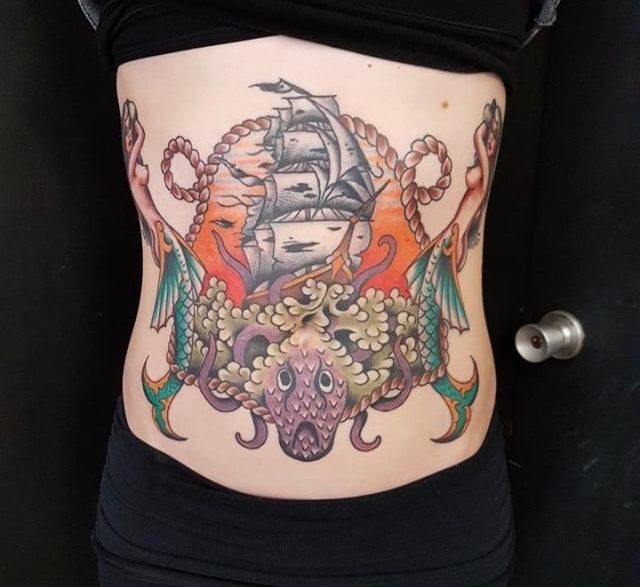
Kimberly’s stomach tattoo
Over the last few years I have gone through traumatic things that really tested my abilities to cope. What I’ve lost and survived my mind is not so easily processing at times and letting go of. I’m struggling and sinking but I am not defeated. As an act to refocus my mind and remind me that I can persevere, I decided late last year to tattoo my stomach with imagery that is symbolic of a phrase I often say to myself: a smooth sea never made a skilled sailor. It’s a battered looking ship, flanked by beautifully vicious sirens, and a kraken underneath attempting to pull it below. In the background is a beautiful bright red and orange sunset. When I see it every day in the mirror it reminds me that I’ve survived what the universe has thrown at me thus far, and I can be strong enough to take on whatever comes. I might be damaged but I am not completely broken. I can battle onward, or at least try my best to with what I have. Plus, I sat still through 4 sessions of stomach tattooing (roughly 3 hours each), which was NOT fun at all, and I did it without surgical drugs or screaming. So, if I can do that then I can handle a lot of things.
I’m not fixed or cured, not by any sense of the word, but I am better. I am psychologically, emotionally, and aesthetically a work in progress.
Tattoo by Dustin Barnhart, Berlin Tattoo in Kitchener, Ontario. Photo taken by Rob Faucher.
